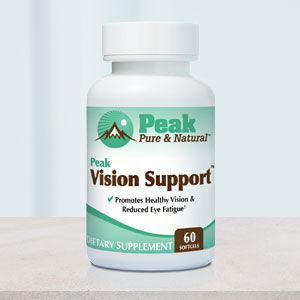Get Easy Health Digest™ in your inbox and don’t miss a thing when you subscribe today. Plus, get the free bonus report, Mother Nature’s Tips, Tricks and Remedies for Cholesterol, Blood Pressure & Blood Sugar as my way of saying welcome to the community!
Get a whiff of this to put a stop to cognitive decline

Researchers are working overtime to try to untangle the complexities of cognitive decline and find better treatments for mind-stealing conditions.
They’ve been taking a look at all sorts of bodily processes that may be related to the development of dementia and Alzheimer’s — and they’ve come across a strange one that may offer a simple way towards treatment… or at the least slow the dreaded decline in cognitive abilities and memory loss.
And all it takes is a good sniffer…
Menthol could be the trigger
Scientists have established that the bundle of scent-detecting nerves known as the olfactory bulb can strongly influence the brain by triggering certain responses that affect memory and emotion, among other things.
These links between smells and our immune and nervous systems are something investigators are trying to understand. It’s interesting to note that some neurodegenerative diseases, like Alzheimer’s and Parkinson’s disease, often come with a loss of smell.
Researchers in Spain previously observed that inhaling menthol provoked an immune response in mice. They decided to see if this scent could affect their cognitive abilities as well.
The researchers took both healthy and Alzheimer’s mouse models and exposed them to the scent of menthol for repeated short bursts of time. And the results were encouraging…
When the mice with Alzheimer’s inhaled the menthol, their cognitive abilities improved, indicating the chemical compound may stop some of the damage to the brain usually associated with the disease.
“Surprisingly, we observed that short exposures to this substance for six months prevented cognitive decline in the mice with Alzheimer’s and, what is most interesting, also improved the cognitive ability of healthy young mice,” says immunologist Juan José Lasarte from the Center for Applied Medical Research (CIMA) in Spain.
Specifically, the researchers discovered a reduction in interleukin-1-beta (IL-1β), a protein that helps to regulate the body’s inflammatory response. Inflammation is the body’s protective response, but when it’s not controlled properly it can lead the body to attack itself.
Some of the same effects were observed when researchers artificially reduced the number of T regulatory (Treg) cells, which help keep the immune system from running out of control. This opens a possible route for future Alzheimer’s treatments.
“Both menthol exposure and Treg cell blockade caused a decrease in IL-1β, a protein that could be behind the cognitive decline observed in these models,” says CIMA neuroscientist Ana Garcia-Osta. “In addition, the specific blockade of this protein with a drug used in treating some autoimmune diseases also improved the cognitive capacity of healthy mice and mice with Alzheimer’s.”
As CIMA immunologist Noelia Casares stated, “This study is an important step toward understanding the connection between the immune system, the central nervous system and smell.”
The memory-stirring power of scent
Considering our penchant for scented candles, essential oils and aromatherapy, there are obviously several great ways to occasionally enjoy the scent of menthol if you’d like to give it a try.
You may find it infused in many bath and spa products, including soaps and salts. And we all remember the all too familiar scent of Mentholatum® ointment that mom would whip out for chest colds.
Just don’t overdo it…
Any essential oil, especially in in high amounts, can pose an unexpected risk, possibly impacting the endocrine system — and menthol is particularly strong. For that reason, don’t use it in your diffuser for long periods of time (especially around pets who can be affected differently).
A muted choice may be peppermint, which contains some menthol, and is used to relieve nausea, soothe muscle aches and pains, boost energy levels and relieve migraines. It can also ease stress, help with congestion and respiratory issues, reduce indigestion and gas and relieve irritable bowel syndrome (IBS).
An unrelated choice is rosemary. It’s also been found to improve memory. My favorite way to enjoy it is to just pick a sprig and crush the leaves. The scent is immediately released, all naturally.
Editor’s note: While you’re doing all the right things to protect your brain as you age, make sure you don’t make the mistake 38 million Americans do every day — by taking a drug that robs them of an essential brain nutrient! Click here to discover the truth about the Cholesterol Super-Brain!
Sources:
Mouse Study Reveals Unexpected Connection Between Menthol And Alzheimer’s — Science Alert
Our Sense of Smell Gives Us a Startlingly Fast Warning System For Danger — Science Alert
Improvement of cognitive function in wild-type and Alzheimer´s disease mouse models by the immunomodulatory properties of menthol inhalation or by depletion of T regulatory cells — Frontiers in Immunology















